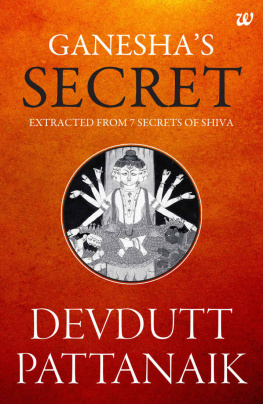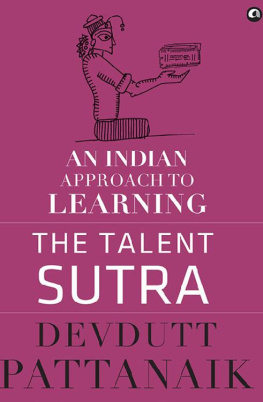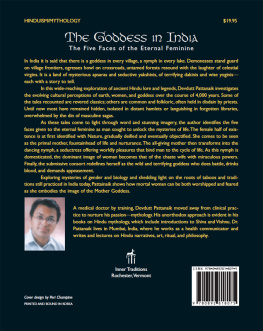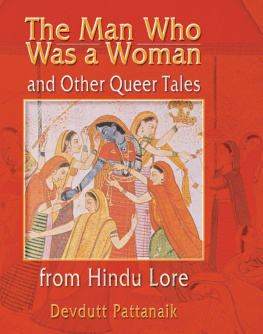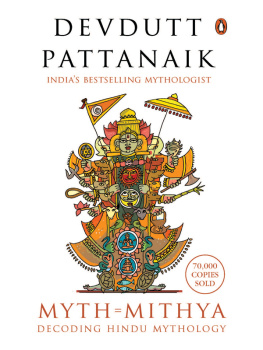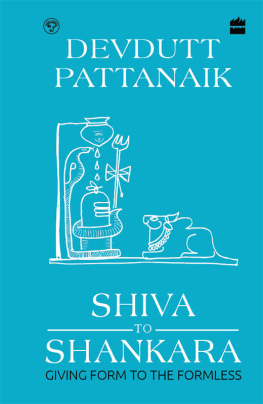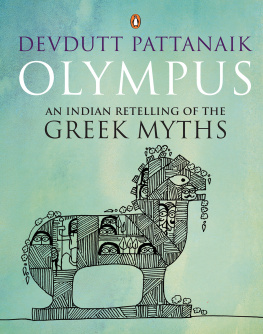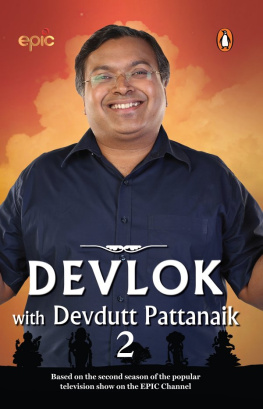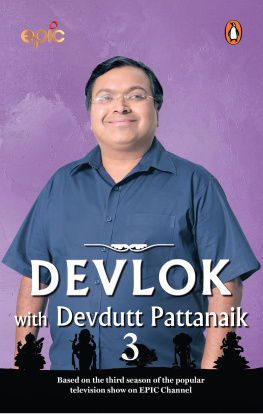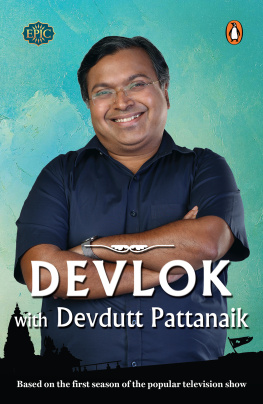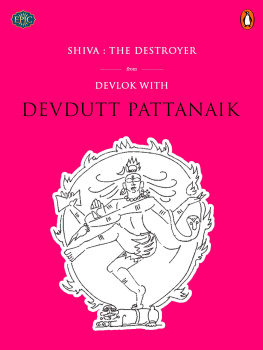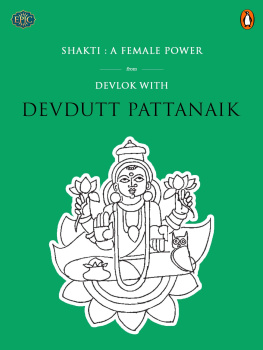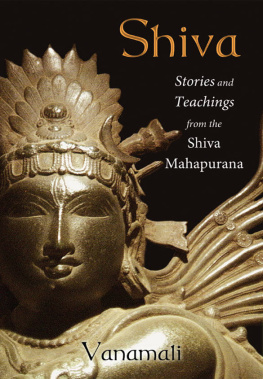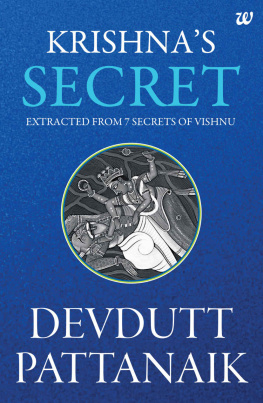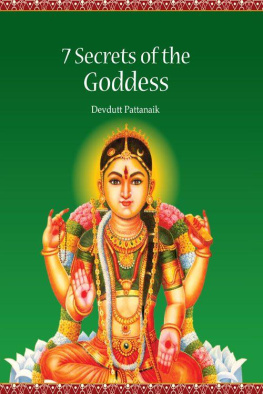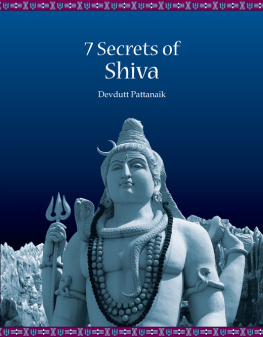westland publications ltd
61, II Floor, Silverline Building, Alapakkam Main Road, Maduravoyal, Chennai 600 095
93, I Floor, Sham Lal Road, Daryaganj, New Delhi 110 002
Ganeshas Secret
This ebook edition has been extracted from 7 Secrets of Shiva
First published by westland ltd, 2011
Copyright Devdutt Pattanaik, 2011
Inside illustrations copyright Devdutt Pattanaik, 2011
This ebook edition first published by westland publications ltd, 2017
Copyright Devdutt Pattanaik, 2017
cover design for this ebook edition copyright westland publications ltd, 2017
All rights reserved
Contents
Food alone does not satisfy hunger
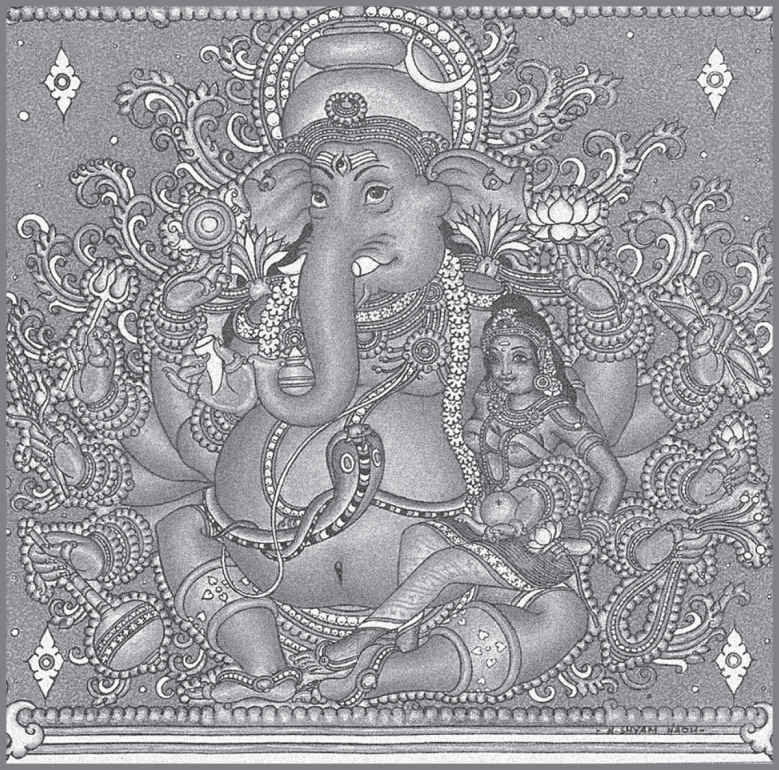
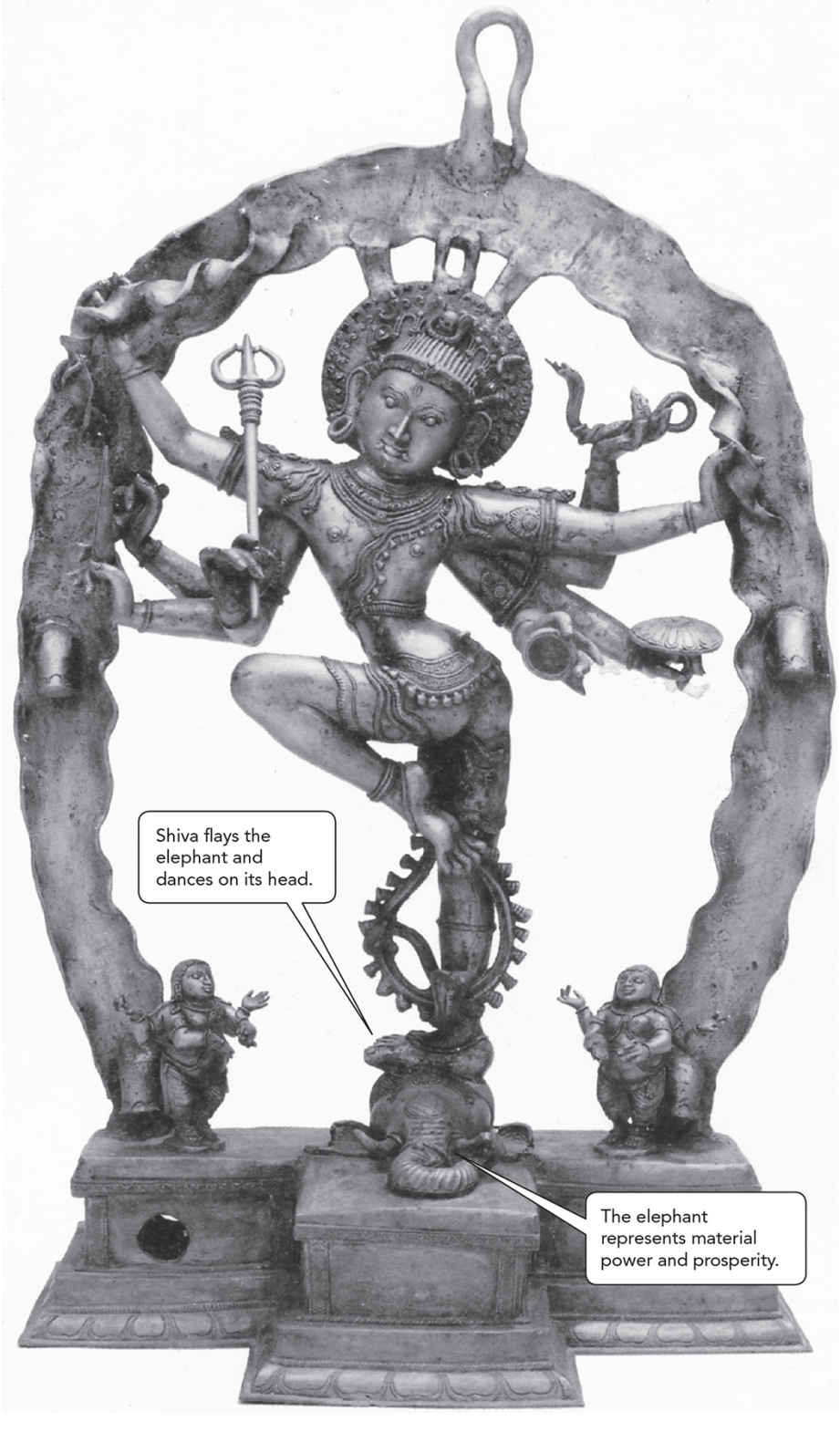
South Indian bronze sculpture of Shiva as Gajantaka, the elephant-killer
A s long as the lion is hungry, the deer is afraid. As soon as the lion is fed, it forgets its fear of scarcity and the deer no longer has to fear the predator. Food thus plays a fundamental role in allaying fear.
The elephant has access to a lot of food, thanks to its great size. And thanks to its size, it has no natural enemies. This makes the elephant the least frightened of all animals in the jungle. This makes the elephant a symbol of power. Its presence points to a rich ecosystem that is fertile and green and full of water, capable of supporting many human settlements. This makes the elephant a symbol of prosperity. Naturally, it is associated with Indra, king of the Devas, ruler of the sky and Lakshmi, goddess of wealth.
Shiva however kills the elephant. He is Gajantaka, slayer of the elephant, who flays the elephant alive, dances on its head, and wraps its skin around his body. Elephant skin is not easy to cure and tan; it is full of fat and blood and rots easily. Shiva drapes around his body this Gaja-charma or elephant-skin. This reinforces Shivas desire to stay away from all things material. He wants to break free from nature. He does not want to even depend on Prakriti for food.
When Parvati goes about setting up her kitchen in Kailasa, Shiva does not see the point. He watches her collect fruits and vegetables and grain and spices in baskets. He watches her domesticate fire in the stove. He watches her collect water in a pot. He watches her get her pots and pans and spoons ready. Then he sneers, What is the point of food? Everything will one day die anyway. In response, the Goddess instantly disappears along with her kitchen. Now there is no food in Kailasa. Shivas Ganas weep. Food, they say, keeps the hunger pangs away. Food, they say, with its many flavours and textures, excites the senses, and helps them experience the variety of nature. Food, they say, provides contentment and allows the mind to move away from fear. Shiva feels the pain of his Ganas. He experiences what they experience. He yearns for what they yearn. He realises that these needs and cravings of the body force him to think about mortality. From fear of death stems the yearning for immortality and this yearning for immortality eventually paves the path towards spirituality. If there is no food, there is no body, no engagement with Prakriti, no encounter with Kama or Yama, no feeling whatsoever. Shiva realises how food plays a key role in the human journey from Prakriti to Purusha. He sets forth in search of his wife. He finds her on the banks of the river Ganga, in the city of Kashi, as the Goddess Annapurna, providing food to all those who come to her. Shiva extends his begging bowl. The Goddess, with great affection, fills it with hot, flavoursome food.
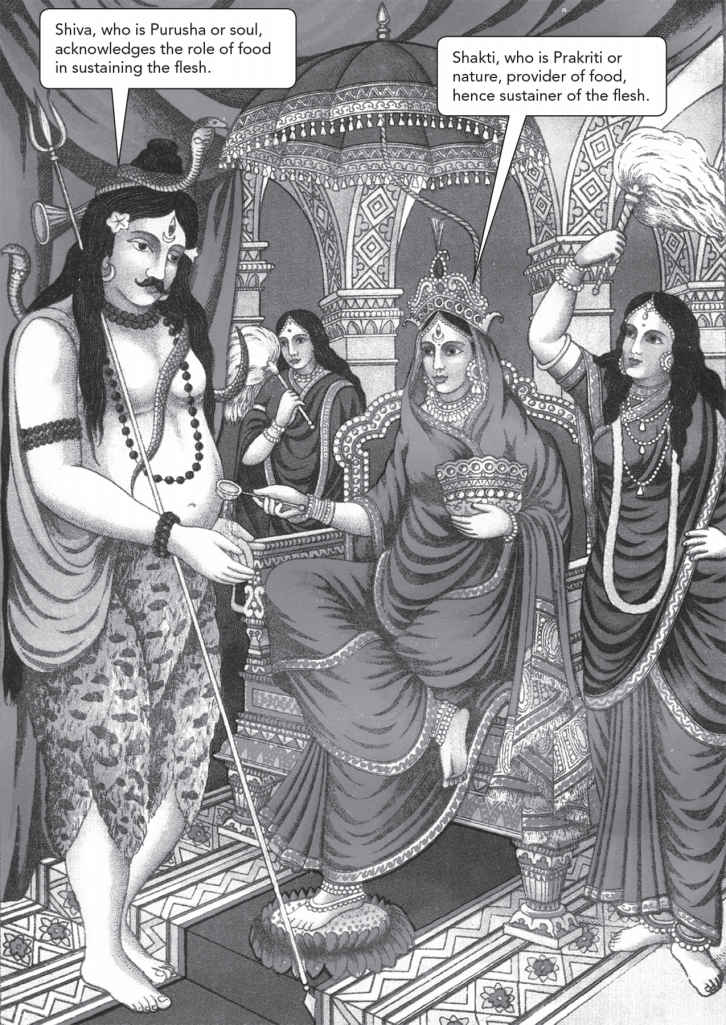
Calendar art of Shakti as Annapurna of Kashi offering Shiva food
As a reminder of the value of the Goddess and her kitchen, uncooked food in the form of nuts and raw milk is offered to the hermit Shiva of Kailasa while the householder Shankara of Kashi is offered cooked food.
HINDUS BELIEVE THAT WHEN A person dies, Yama claims his physical body, or sthula sharira, and his mental body, or sukshma sharira, which animates the physical body. But there is a third body the body of subconscious memories, full of fears and resulting prejudices, known as karana sharira, which outlives death. This body envelops the Purusha and prevents it from observing the true nature of Prakriti, and hence realising its true self. That is why, when a person dies, the karana sharira travels across the river Vaitarni and reaches the land of the dead where it resides as a Pitr. As long as the karana sharira exists, fear still exists and the Pitr is not able to reach Shivas Kailasa where there is bliss forever. In order to reach Shivas abode, one has to purge the karana sharira of all fears and prejudices. This can only be done in the land of the living. For this, one needs a human body that offers the wherewithal to imagine and reflect and choose. To obtain the human body the Pitr have to be reborn. Once reborn, to sustain the flesh, they need food.
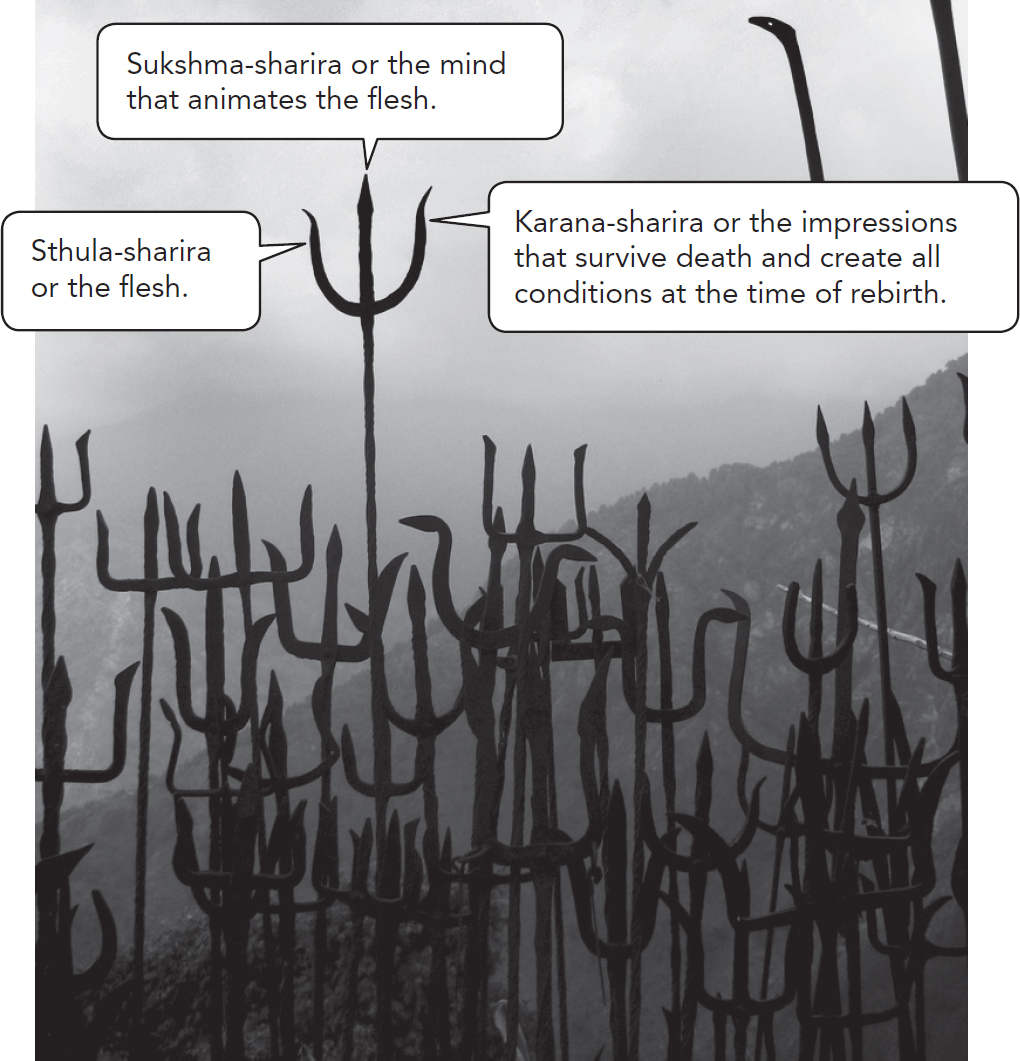
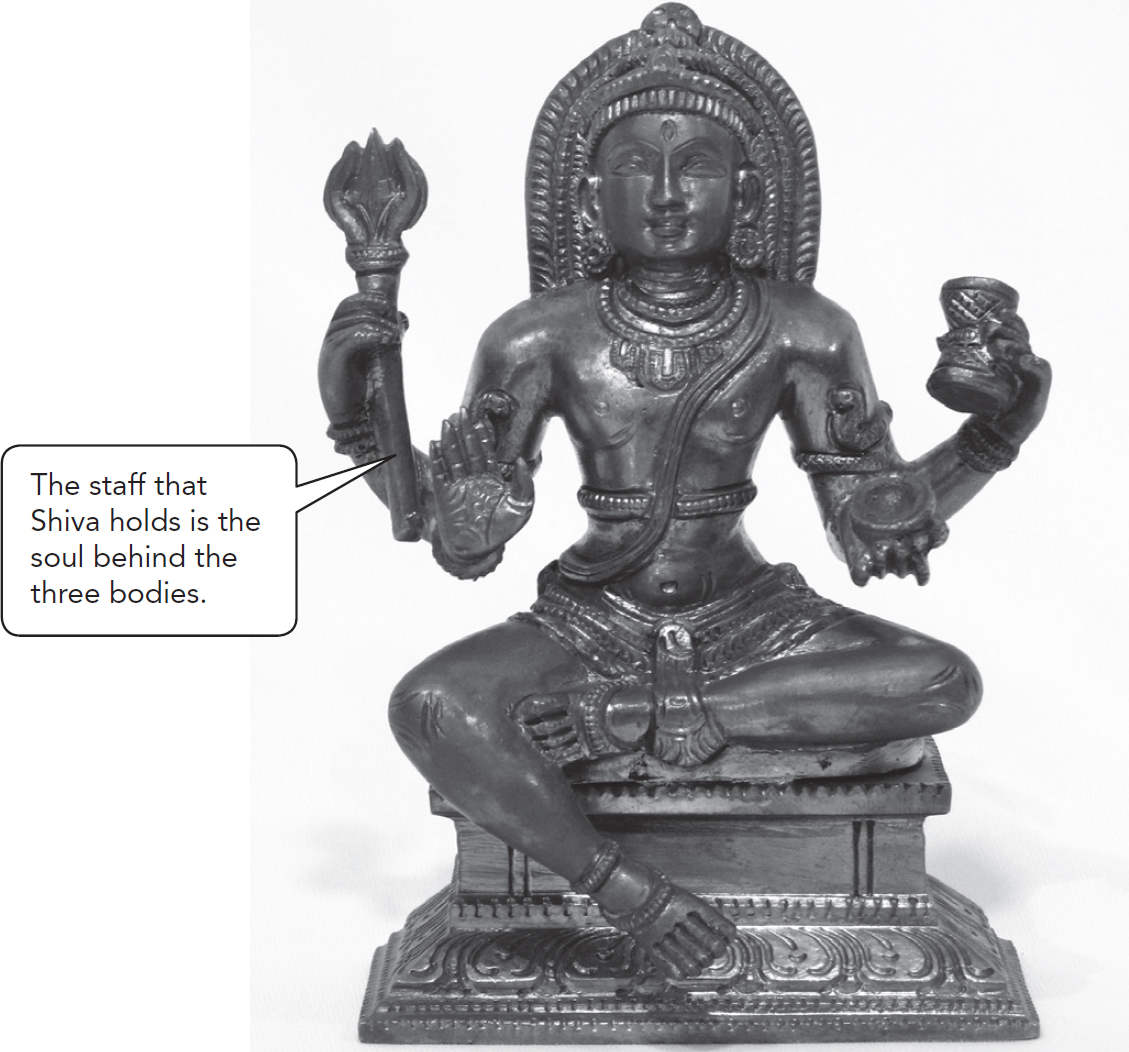
Bronze of Shiva holding the trident
The scriptures state that every living creature is obligated to produce children to repay the debt they owe to their ancestors who gave them life. This is Pitr-rin. During funeral ceremonies, the Pitrs are offered balls of mashed rice. The balls represent the human body because ultimately food forms the building block of the flesh. By offering these balls to ancestors, the living assure the dead that they will produce children, enable the dead to regain sthula and sukshma sharira, and thus repay their debt.
The concept of debt is a cultural thought that forces the human male to produce children. This cultural thought is needed because, of all creatures on this planet, only human couples can choose whether to have children or not. In case of all other animals, procreation is fettered by natural rhythms, not free will. Even amongst humans, the male of the species has greater choice. The female of the human species can be forced to conceive a child but the human male cannot be forced to make a woman pregnant. Even if aroused, he need not spill the seed in the womb. Thus he can take pleasure but not father a child. The concept of debt to ancestors or Pitr-rin is an integral part of culture aimed at preventing men from becoming indifferent, self-absorbed hermits and forcing them to become householders, responsible for others.
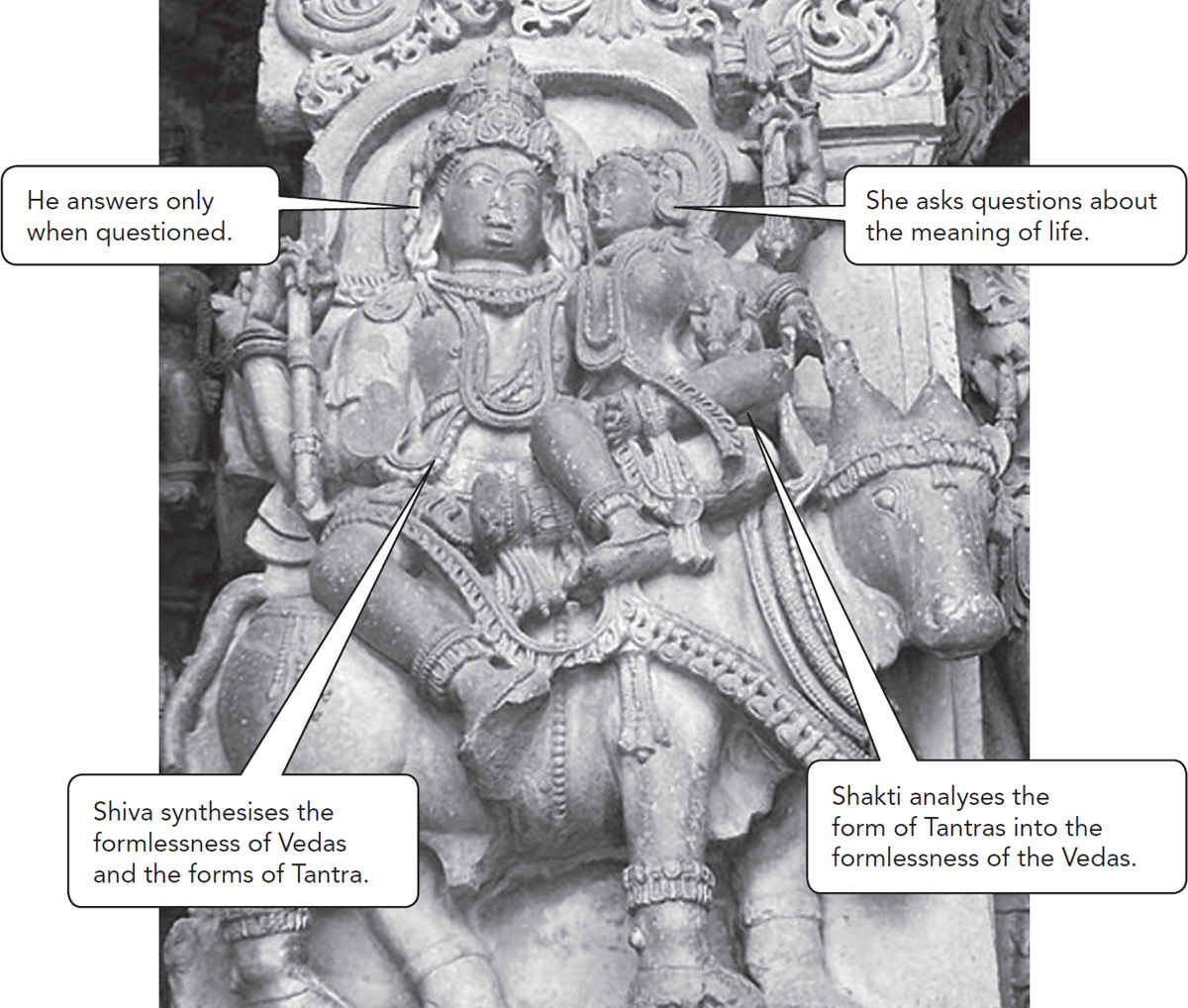
Temple wall image from Belur, Karnataka, showing Shiva and Shakti on a bull
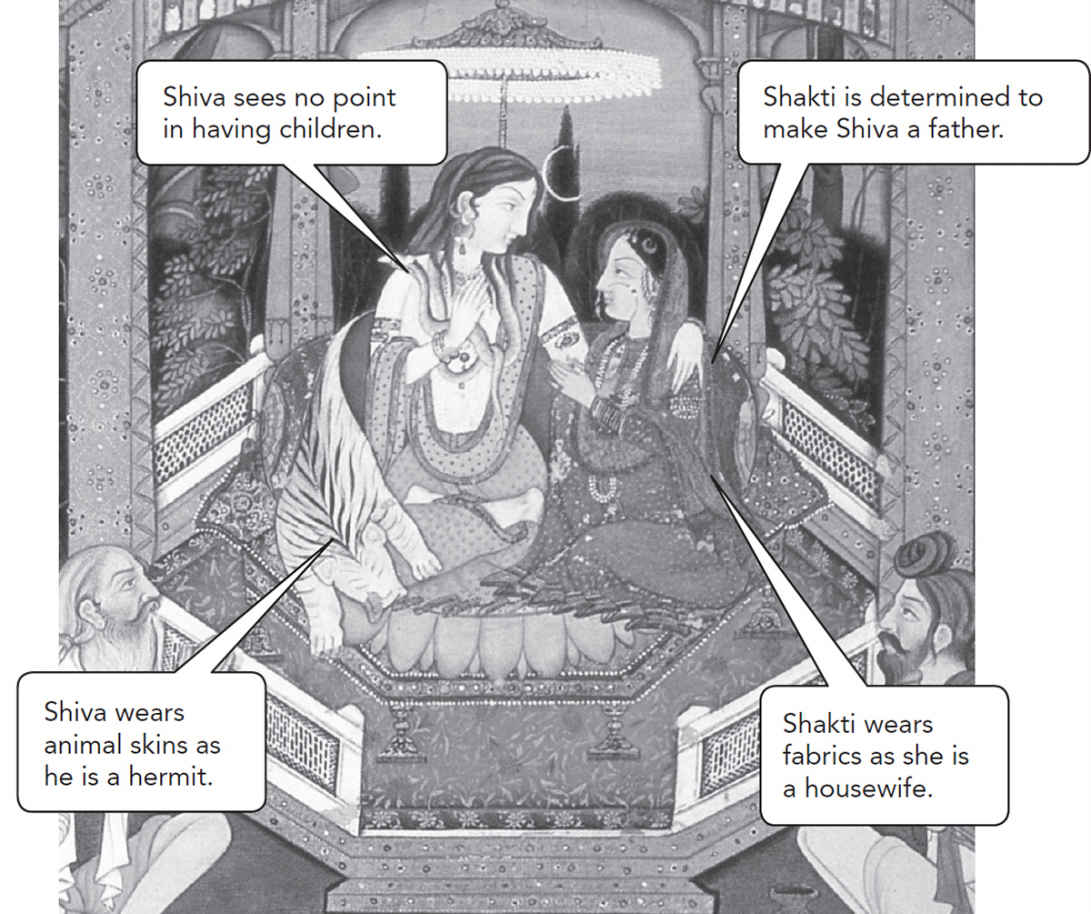
North Indian miniature showing Shiva and Shakti atop Mount Kailasa
When Parvati expresses her desire to be a mother, Shankara argues, I owe no debt to any ancestors, as I have no ancestors; I was never born, and I will not die, so I need no children who will help me be reborn. When Parvati persists, Shankara walks away from her to meditate in serene isolation in the dense daruka vana, the deodar forest.
Next page
